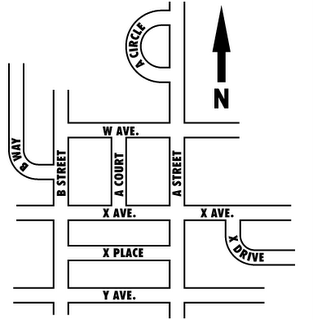
With ¢60 billion allocated in this year's budget for the process of street naming and house numbering, the prospect of a properly-ordered address system in Ghana is finally becoming a reality.Already, the first pilot schemes are underway - with streets in the Asante Akim North District of the Ashanti Region sounding more like the avenues and streets of New York – 22nd Street, 4th Avenue, etc.
Explaining to The Statesman, the Finance Minister and Member of Parliament for Asante Akim North said it was decided to use numbers to avoid the controversy of whose name to include and whose to leave out.
Linked to this street naming and house numbering exercise is the ongoing National Identification Card registration process, and an initiative to re-evaluate private properties nationwide."It is a holistic approach to move the nation from a cash-based economy to the more expansive and flexible modern system of a credit-based economy,” explained Kwadwo Baah-Wiredu, in an interview with The Statesman.
Eventually, every town and city in the country will join the exercise, being divided into clearly demarcated roads and properties which can be identified on a map and people who can be identified by a fixed place of abode and not by a post office box.
The scheme is expected to bring order to Ghana"s development, to aid with future town planning and to improve Ghana’s administrative machinery.Speaking to this paper yesterday, the Minister directly in charge of the street-naming and house-numbering project, Stephen Asamoah-Boateng, said the immediate plan is to extend the exercise to 50 districts selected from all ten regions across the country.
He described it as a joint public-private partnership project, which when completed will greatly boost the revenue-mobilisation capacity of the local authorities.The advantages of the street-naming and house-numbering project, as explained in The Statesman Editorial of today, are enormous, both economically and socially.
The Minister of Local Government, Rural Development & Environment underlined that fact by saying, "It would help our efforts in enforcing law and order, rapidly responding to emergencies, such as robberies and fire outbreaks.
Also, the banks will feel more comfortable lending money to a person with a recognisable house address."He also hinted that after the completion of this project, the local authorities will be in a position to implement a more streamlined model of property rates – which will group properties in particular areas into bands, with each within a band paying a set rate.
Speaking Monday during the road-naming ceremony in Konongo, the District Chief Executive of Asante Akim North, George Kwame Frimpong, said the new road system would also aid the emergency services such as the Fire Service and Police Services in their work, enabling them to more easily identify and locate the scene of an emergency.
The haphazard lay-out of towns and villages across Ghana is likely to be one frustration with the project, however. Mr Frimpong said that in the future, developing communities would have to include access lanes in any development.
"This is very necessary since institutions such as the Fire Service would have to get access to distressed victims on time without any let or hindrance," the DCE said.A clear addressing system will also assist district assemblies in their tax revenue as hitherto unidentified properties will be roped into the tax net, he said. Other benefits include the expansion of a door-to-door postal system in Ghana, and the easier location of businesses.
Mr Frimpong told The Statesman that the pilot project already covers Agogo, Konongo and Odumasi, whilst in areas such as Patriensa, Hwidiem, Dome, Woraso and Duase, work is about 60 percent complete.He said when the pilot street naming project is completed, the Assembly will then go ahead with the house numbering.
He said the assembly is considering inviting members of the public who are interested in having streets named after them to take part in the project.
Source:The Statesman
Source:The Statesman










